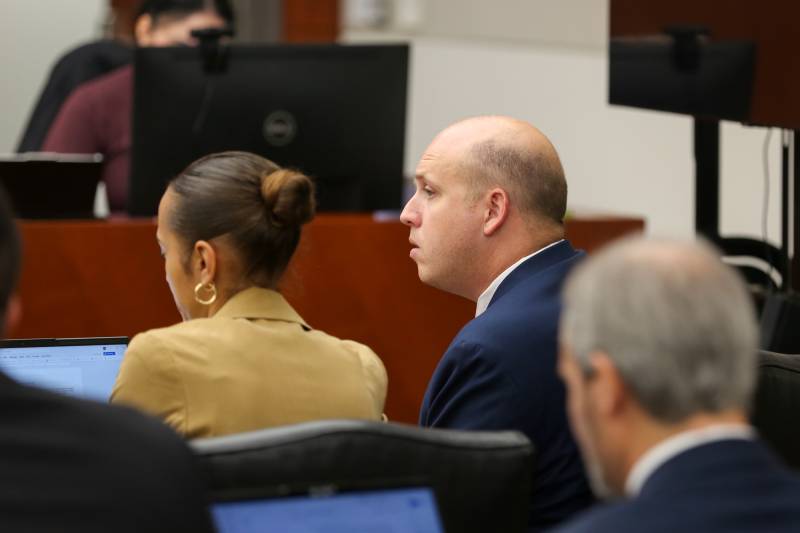“When you look at all the pieces together, all of the evidence as a whole, the only reasonable conclusion that you’ll be able to reach is that the defendant, Anthony Becker, is guilty of perjury and failing to uphold his duty,” Malinsky said.
Malinsky highlighted the testimony given by Chandhok, who was the prosecution’s key witness and the first called at the start of the trial last month. Chandhok testified that he had received the confidential report from Becker in a secure text message via the Signal app on Oct. 6, 2022, about four days before it was set to be released publicly. That allowed the team to get ahead of the criticisms in the document, he said.
Malinsky also pointed to other pieces of evidence, such as digital remnants on Becker’s phone that show he deleted the Signal app minutes before speaking with investigators in late 2022 about the leak. Malinsky said it shows Becker knew he was guilty, and that he lied to a civil grand jury and authorities to try and cover his tracks.
One of Becker’s attorneys, Deputy Public Defender Christopher Montoya, in his closing arguments, raised a series of doubts about the quality of the DA’s investigation and questioned whether authorities actually left “no stone unturned.”
Montoya said the prosecution was trying to avoid admitting to their mistakes, including losing an audio recording the lead investigator made on an iPhone when searching Chandhok’s home for evidence.
Montoya also tried to chip away at the Chandhoks’ trustworthiness, noting that Chandhok admitted during his testimony that he had lied to reporters about where he got the report and didn’t disclose that information to his public affairs team.
Montoya said the prosecution wore “blinders” during their investigation of Becker.
The jury was sent to deliberate Wednesday afternoon but did not reach a verdict in the roughly 20 minutes before court closed for the day, and are scheduled to resume deliberations on Thursday.
On Tuesday, Becker’s five-member defense team filed a motion asking Superior Court Judge Javier Alcala to acquit him of the charges, claiming the prosecution’s evidence of the crimes was “insufficient.”
“It remains highly unclear whether Mr. Becker leaked the report given a lack of documentary evidence and witness credibility,” the motion stated. “And there is even less evidence that Mr. Becker knew his testimony was false or that he intended to testify falsely when he denied leaking the report.”
Alcala, however, quickly denied that motion, saying he had read and considered it but offered no further explanation.
Just before court wrapped on Tuesday, Montoya handed Alcala another motion, asking him to declare a mistrial in the case.
Alcala took that up on Wednesday after the jury was sent to deliberate. Alcala again didn’t explain his decision in detail but told the defense attorneys, “I’ve read and considered your motion, and it’s denied.”
The trial has been marked by frequent disruptions, with attorneys regularly calling for sidebar and bench discussions with the judge and having disagreements over a host of procedural issues, including late disclosures of evidence and what kind of arguments are relevant to the case.
The level of contentiousness led Alcala on Wednesday to sigh and say, “We can’t seem to agree on anything here.”

